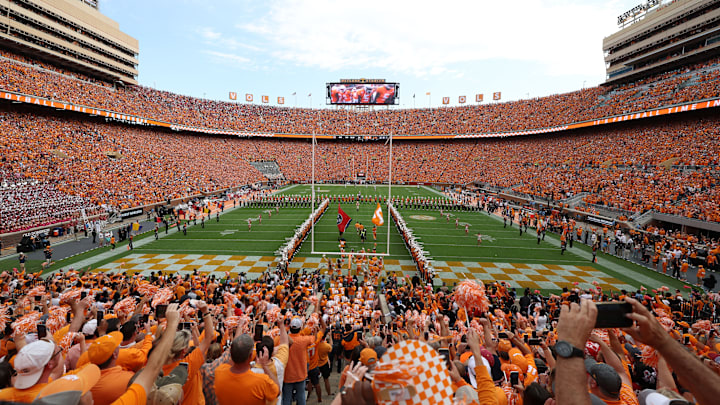There has been a lot of change happening throughout college football in the past few years: realignment, expansion, and now elimination, as the NCAA announces it is eliminating the National Letter of Intent.
The National Letter of Intent program began in 1964 as a means for students to formally commit to a university with an official letter announcing their intentions to be an athlete at their chosen school.
After this most recent announcement, the NLI will no longer be a formality and will essentially end "National Signing Day," although that has also effectively lost its magic with two different signing periods plus two transfer windows per recruiting cycle.
This is another move in response to players being allowed to profit off their likeness. To replace the NLI, student-athletes will make financial aid and scholarship agreements instead. Some recruits have been released from their NLI because the school they committed to did not uphold their Name, Image, and Likeness agreement with the athlete.
It also changes how transfer recruiting will be handled. Once a student-athlete signs their financial and athletic aid agreements, other programs cannot contact that transfer athlete.
If done correctly, this could be a more transparent process for athletes to best understand what potential universities are able to do for them in terms of compensation. Of course, every player won't negotiate massive salaries or deals, but this could be most beneficial for athletes who won't make millions and understand the benefits any potential university could offer.
The NCAA has been making constant changes in recent years in response to NIL and paying players going into effect. This is another consequence of those decisions and one of many changes on deck for the ever-changing landscape of college football.
How do the changes affect Tennessee?
Well, that's the interesting part—it's unclear how the new system will affect different teams. Tennessee has a great NIL foundation and a supportive administration, and they haven't tried to pull any fast ones on recruits, so they shouldn't be hurt by the new commitment format.
Instead of the traditional announcement with athletes signing their letter of intent, they will announce where they will play and possibly the financial agreement they have made with the university they are committing to after high school.
Athletes will have the opportunity to negotiate with the football program directly or through a third-party collective affiliated with the program to determine their contract before signing.
As a result, we continue to inch closer to what looks like an NFL free agency model, where athletes negotiate a deal with multiple teams and decide where they will play based on team fit, financial opportunities, and a variety of other factors that were not available to past generations of recruits.
This change shouldn't change how Tennessee recruits too much besides adjusting to the new formalities of the recruiting process. Josh Heupel and the staff will continue to hit the recruiting trail running and build a great roster year in and year out in Knoxville.
